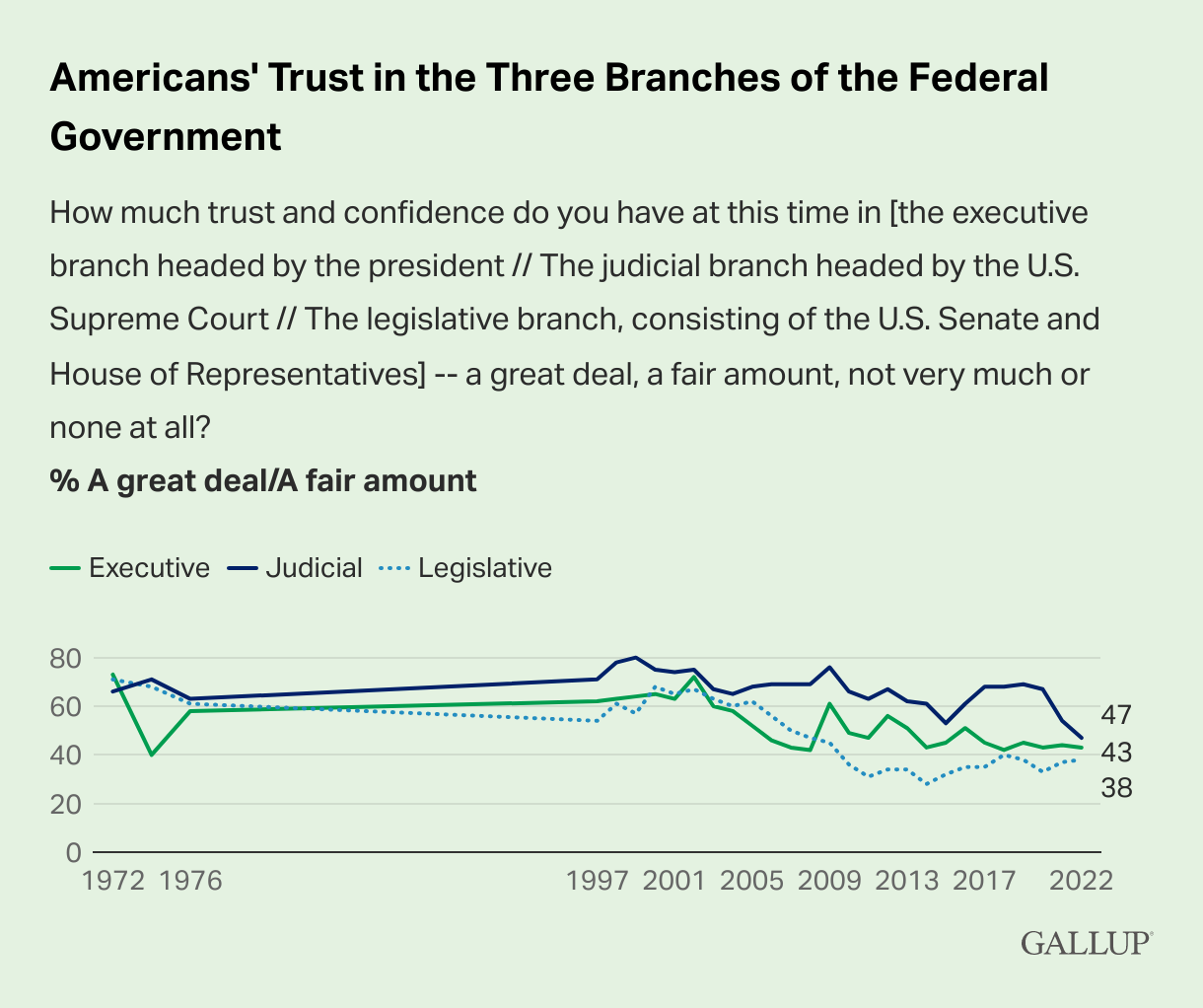How supreme is the Supreme Court’s job approval rating?
Critical Analysis
Find answers to the following questions using the visual above, any links below, your big brain, and your knowledge of American government and politics:
What portion of Americans approve of the way the Supreme Court is doing their job?
Over the past 20 years describe one trend in approval of the Supreme Court?
The current rating ties the court’s record-low job score over the past two decades. Why do you think the Supreme Court has its lowest approval in a generation?
What is one consequence of this?
How do you think political party affiliation impacts approval of the Court?*
The Supreme Court is the highest part of the federal judiciary, which also includes U.S. federal district Courts, And U.S. Courts of Appeals. How do you think the approval of the federal judiciary compares to approval of the other branches of government?*
In a way, approval ratings are very important to Congress, the President, and elected officials. Explain why approval ratings don’t always matter to the Supreme Court.
Despite this, some members of the Supreme Court are very concerned about public approval, arguing that the court’s legitimacy (public perception and approval) is what gives force to its rulings. After all, the Coourt cannot enforce it’s own rulings, only the executive branch can enforce a law or ruling. What would happen if the general public had low or no confidence in the Court
Explain whether you approve or disapprove of how the Supreme Court is handling its job.
During the most recent term, the Supreme Court ruled that colleges could not use race as a factor in deciding admissions; permitted business owners to refuse to work with lesbian and gay customers on free speech grounds; and struck down President Joe Biden’s student-loan debt-forgiveness plan; and in its June 2022 Dobbs v. Jackson Women's Health Organization decision, overturned Roe v. Wade leading to near-total abortion bans in more than a dozen states. These rulings had zero impact on public approval of the Supreme Court. Why do you think that is?
Write and Discuss
Take ten minutes to write about the question at the top of the page and then discuss with your classmates.
Act on your Learning
Contact the Supreme Court and tell them whether you approve of its handling of its job.
General Contact Information:
U.S. Mail:
Supreme Court of the United States
1 First Street, NE
Washington, DC 20543
Telephone: 202-479-3000
TTY: 202-479-3472
(Available M-F 9 a.m. to 5 p.m. eastern)
They don’t do email!!!!! The Court definitely doesn’t have a TikTok.
Get Creative
You have to admit: the Supreme Court uniform is boring. Create a new Supreme Court Uniform that is better than a black robe. Share your design with your classmates.
Learn More
Read the Gallup survey on Approval of the Supreme Court. Or check out this interactive guide to where the Supreme Court Justices sit during oral arguments.




